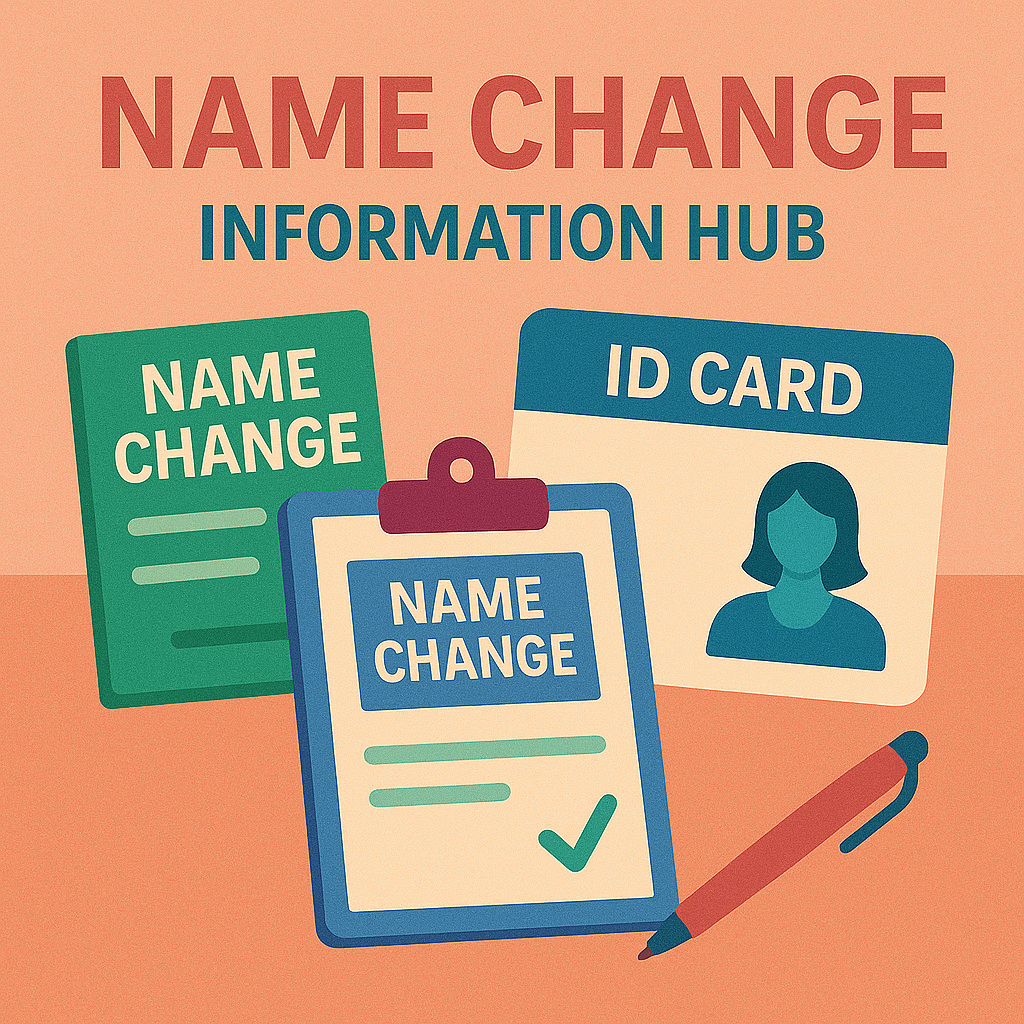Change your name legally and confidently, whatever your reason.
The Name Change Information Hub
Whether you’re getting married, divorced, adopting a child, or simply choosing a new name that reflects who you are, the name change process involves specific legal steps. This hub helps you navigate it with clarity and confidence.

Key Things To Know
Changing your name can be deeply personal—but making it legal requires paperwork, patience, and the right steps for your situation.
- The process depends on why you're changing your name: The steps are different for marriage, divorce, adoption, gender transition, or a personal legal petition.
- Marriage and divorce name changes are often streamlined: In many cases, your marriage certificate or divorce decree serves as legal proof to update your name.
- Adoption and court-ordered name changes involve additional steps: These usually require a petition to the court, a background check, a filing fee, and possibly a public notice.
- You’ll need certified copies of legal documents: These might include a marriage certificate, court order, adoption decree, or divorce judgment—depending on your situation.
- Your legal name change doesn’t update automatically: You’ll need to notify multiple agencies and institutions—like the Social Security Administration, DMV, passport office, IRS, banks, and more.
- Social Security should be your first stop after legal proof: Once your name is updated with the SSA, it’s easier to update other records.
- The DMV requires updated documentation and often an in-person visit: Bring your new Social Security card, legal name change document, and valid ID.
- Airlines and travel documents matter: Make sure your passport and ID match your ticket name to avoid travel issues. Update frequent flyer accounts, too.
- Name changes can affect professional licenses, payroll, and insurance: Make a checklist for work-related documents, health records, and anything involving benefits or credentials.
- Every state has different rules and timelines: Be sure to check your local court or vital records office for forms, fees, and guidance.
Change Your Name Everywhere, Effortlessly
Frequently Asked Questions
Disclaimer: The information provided on this website and by Buried in Work is for general informational purposes only and should not be considered legal advice. Please consult with a qualified attorney or subject matter expert for advice specific to your situation.

